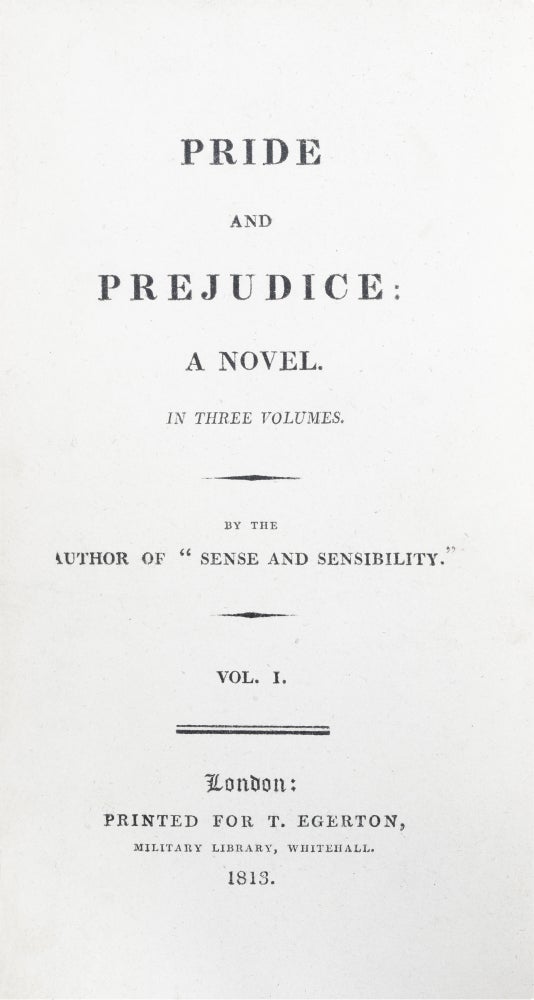
Pride and Prejudice
London: T. Egerton, 1813. First Edition. Hardcover. 3 vols. 1st edition. The little black dress of 19th century novels, among the few that credibly carry the attribute enduring legacy. Contemporary 3/4 green calf, half–title in vol. 1 only, very good, unrepaired, and nicer than most sets sold in the last 75 years that were called very good in buffered descriptions of cant soaring on the thermals of bookselling’s lowest common denominator, and parsed not to inform the reader, but to protect the writer, by telling you the most of what you need to hear the least, while burying the necessities under the kind of misinformation that would raise eyebrows among the crew of an inner city street gang. And though such descriptions are aimed at those who stare at stop signs waiting for them to turn green, if you bite and buy, well, too bad for you. Very good. Item #422
The eminent books we all buy, define us to others. Those we fail to buy, define us to ourselves. Pride and Prejudice is about the search for self. Austen lifted the title from a line in Fanny Burney’s Cecilia (1782), but her principal theme is her own, the importance of environment and upbringing in developing the character and morality of young people, as tested against ineffectual parenting. The book is filled with irony, social pretentiousness, satirical wit, complex and subtle observations of human nature, sensitive moral discrimination, exquisite pen portraits and a modest and inconspicuous perfection of style. Though there are a few timely accidents, I remind the reader that it is only in novels that coincidences seem unnatural. When Jane Austen puts these elements to work, her little domain of struggling families, country fools and snobs, husband hunting mothers and daughters, and eligible landowners and clergymen, is elevated into a sweeping and ageless microcosm of the wider world. And it’s all wrapped in a foaming and yeasty benevolence, made audible by the cheerful clatter of the author’s dairy cans as she skips through the pages dispensing the milk of human kindness.
In 1813 young women were sent off to parties with more false and dreamy expectations than the first 4 hours of a diet and armed only with a warning to cover their feelings. Now it’s 2020 and, unless they are Tinker Bell or Thumbelina, women are sent off to parties with a warning to cover their drinks.
Price:
$55,000.00
